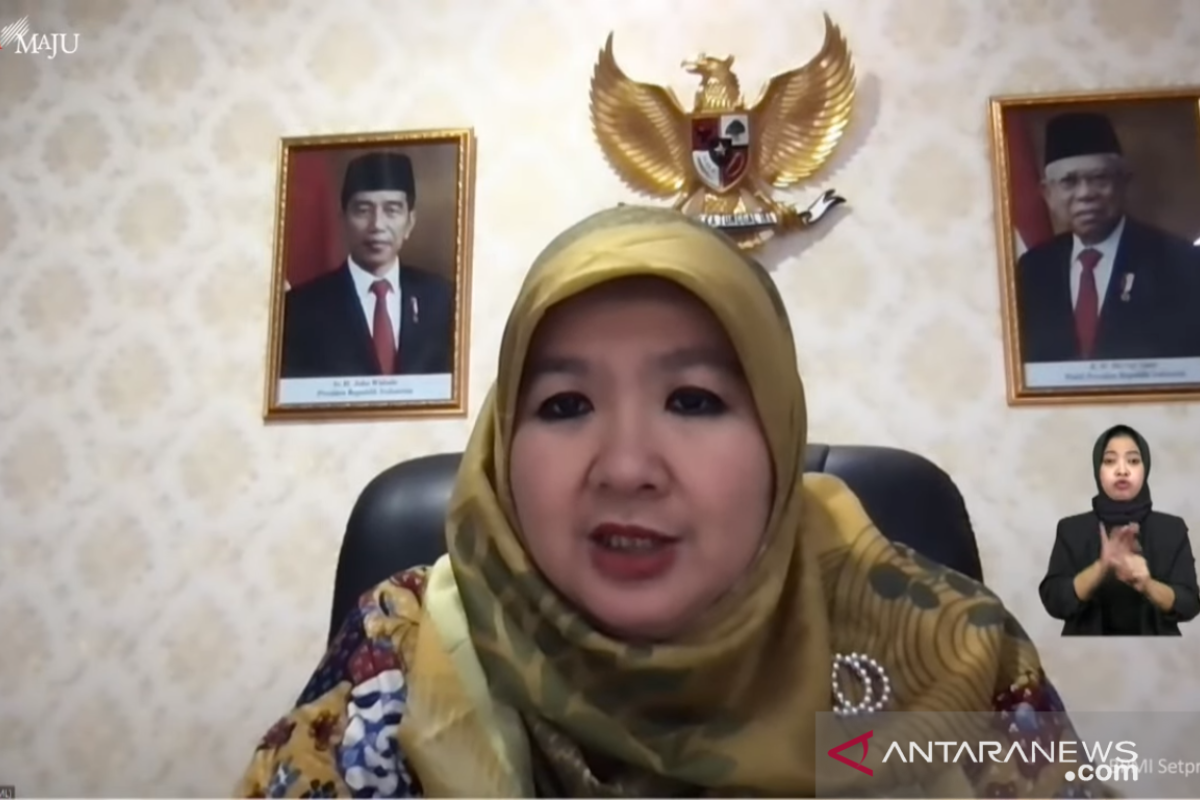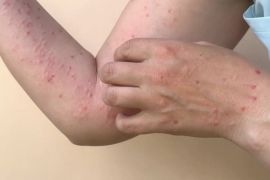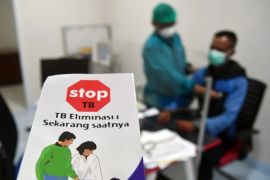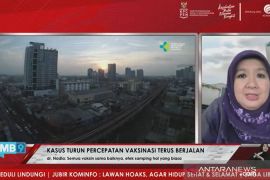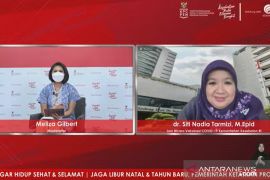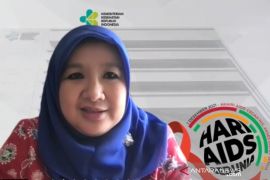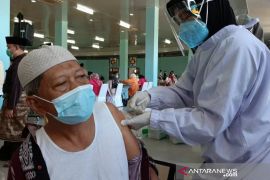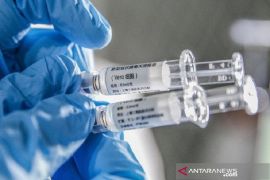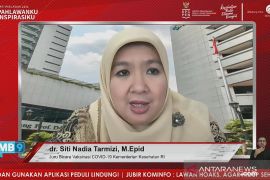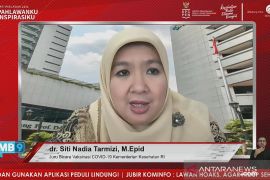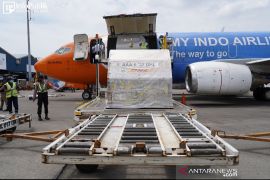"We have received a commitment from the Ministry of Industry so that the conversion of industrial gas to medical oxygen is given up to 90 percent," she said at a press conference on the implementation of emergency public activity restrictions (PPKM) in Jakarta on Friday.
The oxygen production capacity in Indonesia is 866 thousand tons per year, with annual production utilization pegged at 638,900 tons, of which 75 percent is used by industry and only 25 percent is used for medical purposes, she pointed out.
Through the conversion of industrial oxygen for medical use, the amount of oxygen that can be obtained to meet national needs is 575 thousands tons, Tarmizi said.
For now, the existing oxygen capacity will be maximized in seven provinces in Java-Bali due to the increase in COVID-19 cases by 6-8 times in the areas, she added.
Related news: Thohir asks SOEs to convert tankers for oxygen distribution
Based on data from the Ministry of Health, currently the total need for oxygen for intensive care and isolation of COVID-19 patients has reached 1,928 tons/day, while the available capacity is 2,262 tons/day.
Thus, it is targeted that the Java-Bali region can be supplied 2,262 tons of oxygen per day, Tarmizi said.
The need for medical grade oxygen has soared with the increase in COVID-19 cases, she added.
The scarcity of oxygen in some areas is more due to the distribution chain that is not yet optimal, she disclosed.
The government's strategy to overcome this problem is to increase the supply of oxygen and strive for faster distribution to areas with high cases, she said.
In addition to meeting oxygen needs through domestic industries, the government has received assistance from the governments of Singapore, Australia, and China in the form of ventilators, empty oxygen cylinders, and oxygen concentrators, she added.
Related news: Oxygen cylinders, ventilators donated by Singapore arrive in Jakarta
The Indonesian government is also working to ensure the availability of COVID-19 therapeutic drugs and is continuing to coordinate with the pharmaceutical industry to scale up production, the spokesperson said.
The Ministry of Health is regularly coordinating with the pharmaceutical industry and its distribution networks to monitor the availability of drugs for handling COVID-19, in accordance with the 3rd edition of COVID-19 management guidelines, published in December, 2020, she informed.
"In the event of a supply bottleneck for imports from abroad, the Ministry of Health coordinates with the Ministry of Foreign Affairs and relevant ministries to help resolve the supply bottleneck," she said.
The availability of drugs related to COVID-19 in the pharmaceutical industry and wholesalers as of July 9, 2021 stands at 3.2 million favipiravir units, 11 thousand remdesivir injections, 157 thousand oseltamivir units, 2.4 million oral azithromycin units, 163 thousand azithromycin infusion units, 543 tocilizumab infusion units, 7 thousand intravenous immunoglobulin units, and 237 thousand ivermectin units, she disclosed.
According to Tarmizi, the availability of medicines for COVID-19 is constantly being increased and their production is being boosted to ensure their availability on the field.
The Ministry of Health has also reviewed the increase in drug prices and has issued a Minister of Health Decree Number HK.07.07/Menkes/4826/2021 to regulate the highest retail price (HET) for drugs amid the COVID-19 pandemic, she said.
"Let us collaborate with each other and support each other. People also must not panic by buying excessively both drugs and other infrastructure in order to maintain a balance and availability of drugs, especially for those in need," she added.
Related news: Oxygen supplies to suffice for Surabaya hospitals: Vice Mayor Armuji
Translator: Martha H, Azis Kurmala
Editor: Rahmad Nasution
Copyright © ANTARA 2021
